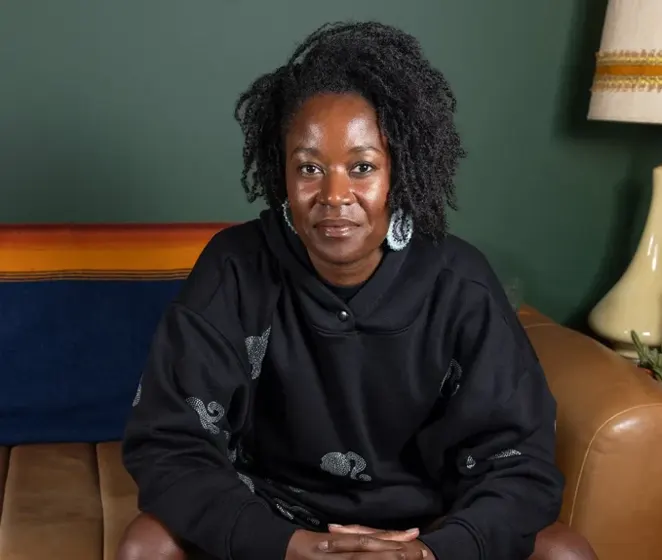by Intentional Spaces Psychotherapy
Have you ever found yourself in the middle of a conversation and suddenly lost your train of thought? Or maybe you have felt your mind racing so quickly that it became hard to put words together, leaving you stumbling for clarity. At other times, you may notice your thoughts moving so slowly that expressing even simple ideas feels exhausting. Everyone experiences moments like these from time to time, especially when stressed, tired, or overwhelmed. But for some, these challenges happen more frequently and in ways that significantly impact daily life.
When thoughts feel jumbled, fragmented, or hard to communicate, the experience can be both confusing and isolating. These moments are not just inconvenient. They can affect relationships, work, and emotional well-being. Over time, they may even change the way a person sees themselves. This is often what people mean when they talk about “thinking disorders,” a term used to describe patterns of disorganized or disrupted thought processes.
Thinking disorders are not always widely understood, and because of that, people living with them may feel misunderstood or even ashamed. But these experiences are far more common than many realize, and they do not mean you are broken or beyond help. Understanding how thinking disorders affect mental health and daily living can open the door to compassion, clarity, and healing. With the right support, it is possible to create more stability and peace of mind.
What Are Thinking Disorders?
Thinking disorders refer to disruptions in the way thoughts are organized, expressed, and processed. They may appear in several ways. Some people struggle to stay on topic, while others find that their thoughts jump so quickly from one idea to another that conversations become difficult to follow. In other cases, thoughts may slow down, feel blocked, or stop altogether, leaving a person unable to communicate what they want to say.
These challenges can be unsettling, but they are not a reflection of intelligence or effort. Instead, they are symptoms connected to underlying causes such as trauma, significant stress, anxiety, depression, or more complex mental health conditions. Thinking disorders may also appear alongside experiences of psychosis or other cognitive challenges.
The important thing to remember is that disorganized or confusing thoughts do not define your worth. They are signals that something deeper needs care and support. Therapy creates space to understand these experiences with compassion and to begin building tools for greater clarity and confidence.
How Thinking Disorders Impact Mental Health
When thought patterns feel disorganized, the impact on mental health is often significant. It can feel like your mind is working against you, creating a constant sense of struggle. Some of the most common effects include:
- Increased anxiety: Racing or confusing thoughts can lead to ongoing worry and fear of being misunderstood.
- Lowered self-esteem: Struggling to communicate clearly may cause embarrassment, shame, or self-doubt.
- Isolation: Social situations may feel overwhelming, causing people to withdraw or avoid relationships.
- Emotional distress: Living with disorganized thinking can lead to frustration, sadness, or irritability over time.
Because thinking disorders often influence both emotional well-being and daily function, they can create a cycle where stress worsens disorganized thinking, which then increases stress. Therapy can interrupt this cycle by offering grounding, clarity, and support.
Daily Life with a Thinking Disorder
The effects of thinking disorders often show up in everyday life in ways that others may not immediately notice, but that feel heavy to those experiencing them. On the surface, someone may appear fine, yet internally they may be struggling to keep their thoughts organized or their words clear. This quiet struggle can shape daily routines, relationships, and even a person’s sense of identity.
Some of the most common challenges include:
- Communication struggles: Conversations may feel draining, and finding the right words may take extra effort. At times, you might feel that what you are saying does not match what you mean, which can lead to frustration or embarrassment.
- Work or school difficulties: Staying focused, organizing tasks, and making decisions may become harder. This can create added stress and may lead to missed deadlines or unfinished projects, even when you are trying your best.
- Relationship strain: Loved ones may misunderstand what is happening, which can create distance or tension. When communication feels unclear, it is easy for both sides to feel disconnected or discouraged.
- Managing responsibilities: Daily tasks like paying bills, scheduling appointments, or running errands may feel overwhelming or take much longer to complete. What seems simple for others may feel exhausting or confusing when thoughts do not flow easily.
Over time, these challenges can affect confidence and independence, making life feel harder than it needs to be. They may also contribute to feelings of shame or self-doubt, especially if others do not see the full extent of the struggle. But with the right support and strategies, it is possible to reduce the impact of disorganized thinking and build a stronger sense of control. Small steps, like learning grounding techniques, asking for help when needed, and practicing new ways of organizing tasks, can make a meaningful difference over time.
Finding Support and Healing
Therapy is one of the most effective ways to address thinking disorders and their impact on daily life. When your thoughts feel scattered, racing, or blocked, it can be hard to know where to turn. A therapist provides more than just coping strategies. They offer a safe, nonjudgmental environment where your experiences are heard, validated, and understood. This is not about being “fixed.” It is about being supported in ways that help you reconnect with yourself and navigate your daily life with more ease and clarity.
In treatment, you may begin to explore skills and tools that create a stronger foundation for stability:
- Grounding skills that calm racing thoughts and help you focus on the present moment, giving your mind a sense of rest and safety.
- Communication tools that make it easier to put your thoughts into words, stay connected in conversations, and feel heard by those around you.
- Cognitive techniques that bring more structure, clarity, and flow to your thinking patterns, making it easier to process information and make decisions.
- Compassionate support that reminds you your struggles are not failures but valid experiences that deserve understanding and care.
Therapy can also include exploring the underlying roots of disorganized thinking. For some, that might mean addressing trauma that has disrupted a sense of safety. For others, it could involve understanding how stress, anxiety, or depression is influencing their thought patterns. By shining a light on these deeper layers, therapy not only helps with immediate symptoms but also promotes long-term healing.
Another powerful part of therapy is learning to rebuild self-trust. When your thoughts feel unreliable, it is common to question your abilities, your decisions, and even your identity. Therapy creates space to slowly rebuild confidence, reminding you that you are more than the challenges you face. Over time, you may begin to notice moments of clarity becoming more frequent, communication becoming easier, and daily life feeling less overwhelming.
Healing is not about erasing challenges overnight. It is about creating tools, insights, and practices that make life more manageable, meaningful, and sustainable. With the right support, shame can soften, self-worth can grow, and relationships can feel more connected and supportive.
Therapy offers hope. It is a process that strengthens your ability to navigate responsibilities, show up in your relationships, and move through your days with a greater sense of peace. Most importantly, it is a reminder that you are not alone. Support is available, and with time and care, healing is possible.

A Gentle Reminder
Thinking disorders and mental health are deeply connected, and their effects can touch every part of daily life. From conversations with loved ones to tasks at work or school, disorganized thinking can make the simplest activities feel complicated. But these struggles do not define who you are. They are experiences that can be supported, managed, and healed with the right care.
If you are living with disorganized or confusing thoughts, reaching out for therapy is a powerful step toward relief. Therapy can help you slow down your thoughts, organize your ideas, and reconnect with yourself and others in meaningful ways. It is not about perfection but about progress, clarity, and the reminder that you are not alone in what you are going through.
Healing is possible. With patience, support, and the right guidance, you can move toward a life with more stability, confidence, and peace of mind. Your thoughts matter, your voice matters, and your healing journey matters.















